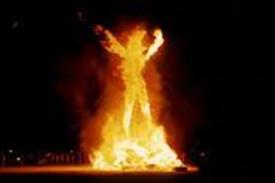Healing the Emotional Eating that Started in Childhood

peterdt
Posts: 820 Member
Taken from Dr. Gould email. Author of Shrink Yourself: The End of Emotional Eating.
I read the book. Didn't like it since it was trying to lead you into signing up for their paid program. But get emails from them every few weeks and find them quite interesting:
A funny thing happened on the way to adulthood...we got hurt.
As adults we are sometimes surprised to discover that a destructive habit of ours actually developed in childhood. A childhood that usually involved having to face something far bigger than we could handle at the time; something that found us alone and without the support of an adult to help us navigate through.
One such destructive habit is emotional eating. Take this case in point:
A wife and mother of two -- let's call her Jenny -- recently realized that she'd been an emotional eater her whole life. She traced her habit back to her childhood where every school day she'd come home to an empty house while both her parents worked. Upon entering the house, Jenny's first action was to grab two sandwiches, chips and soda and head directly for the TV.
And there Jenny sat, burying her true feelings of fear and loneliness, till her mother and father walked in the door some hours later.
Cut to today, some thirty-years later, and Jenny's daily binge has grown to a full bag of chips, a 2-liter bottle of soda and a half-gallon of ice cream. More difficult still is the fact that Jenny finds herself staring into the fridge, post-binge, contemplating what else she can devour.
Is Jenny still waiting for her parents to come home to warm the house? No. But the emotional eating habit that numbed her fear and loneliness -- her hurt -- so many years ago is as powerful today as it was then. Perhaps even more so as it's stood by her all these years, a silent companion keeping at bay everything unpleasant, everything scary, everything too big to emotionally handle.
Can we blame a child for trying to survive emotional turmoil? I think not. Just as I believe it would be harsh and inappropriate to blame Jenny today, as an adult, for the emotional eating habit she carries.
What is the key, then, to discarding this kind of emotional eating habit?
In a word: compassion. Being able to see yourself as a child who had no possible way of coping emotionally with trauma is the beginning of healing, and the beginning of a life free from emotional eating.
Just as Jenny deserved the protection and guidance of an adult -- so, too, did you. The fact that you did not receive it is not your fault. Not in any way.
And so we arrive today at the crossroads of yet another golden opportunity: Do we continue on the path of blame, and shame and self-loathing for what we perceive as our own weakness and lack of discipline? Or do we stand tall as adults, empowered with new knowledge, new perspective, and deliver the compassion and understanding to the child within us who so richly deserves it?
I hope the answer is as obvious to you as it is to me.
Perhaps, then, we'll be able to change the opening line of this post to, "A funny thing happened on the way to maturity...we healed."
I read the book. Didn't like it since it was trying to lead you into signing up for their paid program. But get emails from them every few weeks and find them quite interesting:
A funny thing happened on the way to adulthood...we got hurt.
As adults we are sometimes surprised to discover that a destructive habit of ours actually developed in childhood. A childhood that usually involved having to face something far bigger than we could handle at the time; something that found us alone and without the support of an adult to help us navigate through.
One such destructive habit is emotional eating. Take this case in point:
A wife and mother of two -- let's call her Jenny -- recently realized that she'd been an emotional eater her whole life. She traced her habit back to her childhood where every school day she'd come home to an empty house while both her parents worked. Upon entering the house, Jenny's first action was to grab two sandwiches, chips and soda and head directly for the TV.
And there Jenny sat, burying her true feelings of fear and loneliness, till her mother and father walked in the door some hours later.
Cut to today, some thirty-years later, and Jenny's daily binge has grown to a full bag of chips, a 2-liter bottle of soda and a half-gallon of ice cream. More difficult still is the fact that Jenny finds herself staring into the fridge, post-binge, contemplating what else she can devour.
Is Jenny still waiting for her parents to come home to warm the house? No. But the emotional eating habit that numbed her fear and loneliness -- her hurt -- so many years ago is as powerful today as it was then. Perhaps even more so as it's stood by her all these years, a silent companion keeping at bay everything unpleasant, everything scary, everything too big to emotionally handle.
Can we blame a child for trying to survive emotional turmoil? I think not. Just as I believe it would be harsh and inappropriate to blame Jenny today, as an adult, for the emotional eating habit she carries.
What is the key, then, to discarding this kind of emotional eating habit?
In a word: compassion. Being able to see yourself as a child who had no possible way of coping emotionally with trauma is the beginning of healing, and the beginning of a life free from emotional eating.
Just as Jenny deserved the protection and guidance of an adult -- so, too, did you. The fact that you did not receive it is not your fault. Not in any way.
And so we arrive today at the crossroads of yet another golden opportunity: Do we continue on the path of blame, and shame and self-loathing for what we perceive as our own weakness and lack of discipline? Or do we stand tall as adults, empowered with new knowledge, new perspective, and deliver the compassion and understanding to the child within us who so richly deserves it?
I hope the answer is as obvious to you as it is to me.
Perhaps, then, we'll be able to change the opening line of this post to, "A funny thing happened on the way to maturity...we healed."
0
Replies
-
Do we continue on the path of blame, and shame and self-loathing for what we perceive as our own weakness and lack of discipline? Or do we stand tall as adults, empowered with new knowledge, new perspective, and deliver the compassion and understanding to the child within us who so richly deserves it?
I hope the answer is as obvious to you as it is to me.
Perhaps, then, we'll be able to change the opening line of this post to, "A funny thing happened on the way to maturity...we healed."
Beautiful. Very beautiful.0 -
Amen.0
-
bump for later!!0
-
Wonderful post! Thani you!0
-
That is such a great piece of wisdom. We who have grown up an in abusive home would never dream of being abusive towards our children (at least I can say from experience I wouldn't) yet we continue to "punish" the child within. Thank you so much for sharing those liberating and empowering words!0
-
We who have been emotionally hurt or damaged lots of times tries to find solace in food... Now we just need to find the strength to heal... :brokenheart:0
-
BUMP!0
-
Great post!0
-
Taken from Dr. Gould email. Author of Shrink Yourself: The End of Emotional Eating.
I read the book. Didn't like it since it was trying to lead you into signing up for their paid program. But get emails from them every few weeks and find them quite interesting:
A funny thing happened on the way to adulthood...we got hurt.
As adults we are sometimes surprised to discover that a destructive habit of ours actually developed in childhood. A childhood that usually involved having to face something far bigger than we could handle at the time; something that found us alone and without the support of an adult to help us navigate through.
One such destructive habit is emotional eating. Take this case in point:
A wife and mother of two -- let's call her Jenny -- recently realized that she'd been an emotional eater her whole life. She traced her habit back to her childhood where every school day she'd come home to an empty house while both her parents worked. Upon entering the house, Jenny's first action was to grab two sandwiches, chips and soda and head directly for the TV.
And there Jenny sat, burying her true feelings of fear and loneliness, till her mother and father walked in the door some hours later.
Cut to today, some thirty-years later, and Jenny's daily binge has grown to a full bag of chips, a 2-liter bottle of soda and a half-gallon of ice cream. More difficult still is the fact that Jenny finds herself staring into the fridge, post-binge, contemplating what else she can devour.
Is Jenny still waiting for her parents to come home to warm the house? No. But the emotional eating habit that numbed her fear and loneliness -- her hurt -- so many years ago is as powerful today as it was then. Perhaps even more so as it's stood by her all these years, a silent companion keeping at bay everything unpleasant, everything scary, everything too big to emotionally handle.
Can we blame a child for trying to survive emotional turmoil? I think not. Just as I believe it would be harsh and inappropriate to blame Jenny today, as an adult, for the emotional eating habit she carries.
What is the key, then, to discarding this kind of emotional eating habit?
In a word: compassion. Being able to see yourself as a child who had no possible way of coping emotionally with trauma is the beginning of healing, and the beginning of a life free from emotional eating.
Just as Jenny deserved the protection and guidance of an adult -- so, too, did you. The fact that you did not receive it is not your fault. Not in any way.
And so we arrive today at the crossroads of yet another golden opportunity: Do we continue on the path of blame, and shame and self-loathing for what we perceive as our own weakness and lack of discipline? Or do we stand tall as adults, empowered with new knowledge, new perspective, and deliver the compassion and understanding to the child within us who so richly deserves it?
I hope the answer is as obvious to you as it is to me.
Perhaps, then, we'll be able to change the opening line of this post to, "A funny thing happened on the way to maturity...we healed."0 -
This was very helpful to me. Thanks for posting such a well written and thoughtful piece.0
-
Very, very helpful. I always knew my eating problems started because of my messed up childhood, but I never really had compassion for myself as a child, just shame and the want to "get rid of her." Wow! This is reall something to think about! Thanks for posting!0
-
I love this!!0
-
I am sure most of us are recovering from some childhood trauma and I am not alone in this...eventually we have to get over it and "man" up and accept what is. I am so glad to have discovered MFP to help me eat better and also to help me get a handle on the things that made me fat.0
-
Spot on. This was an excellent reminder for me to be kinder to myself, and to that little girl.0
-
My over eating defintely started in childhood but it's time to let go of that now and eat as an adult taking responsibility for what I nourish myself with. I find using MFP is helping me to stop the destructive fasting/binging cycles I learnt as a child and I am gradually becoming the adult I want to be, both inside and out :-)0
This discussion has been closed.
Categories
- All Categories
- 1.4M Health, Wellness and Goals
- 395.2K Introduce Yourself
- 44.1K Getting Started
- 260.6K Health and Weight Loss
- 176.2K Food and Nutrition
- 47.5K Recipes
- 232.7K Fitness and Exercise
- 445 Sleep, Mindfulness and Overall Wellness
- 6.5K Goal: Maintaining Weight
- 8.6K Goal: Gaining Weight and Body Building
- 153.2K Motivation and Support
- 8.2K Challenges
- 1.3K Debate Club
- 96.4K Chit-Chat
- 2.5K Fun and Games
- 4.2K MyFitnessPal Information
- 16 News and Announcements
- 1.3K Feature Suggestions and Ideas
- 2.9K MyFitnessPal Tech Support Questions











